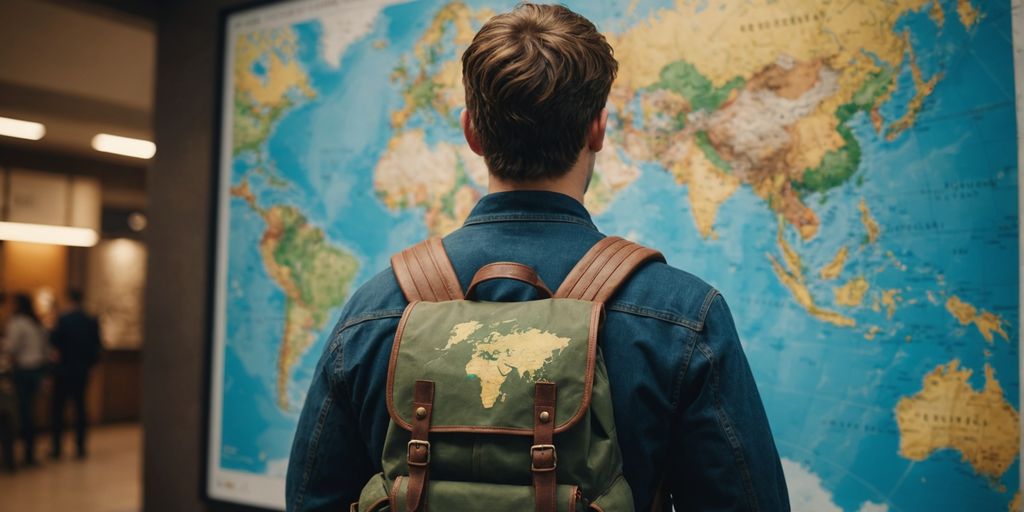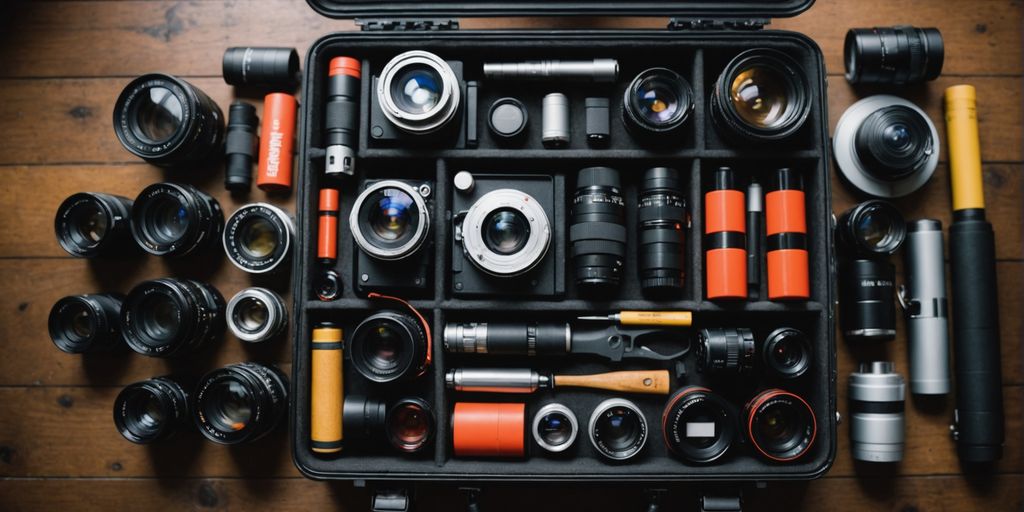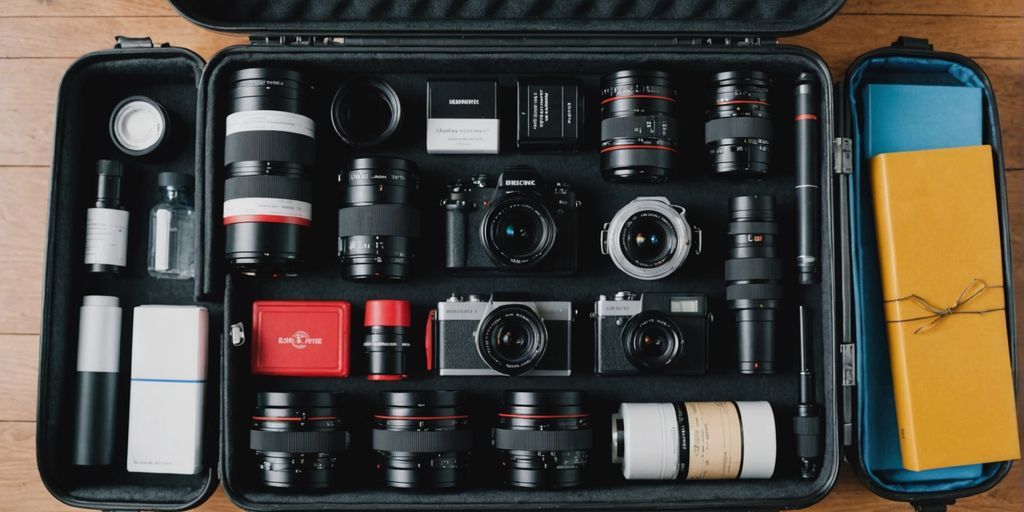Traveling to another country is super exciting, but it’s important to stay safe. Whether you’re visiting a beach, exploring a city, or hiking in the mountains, knowing how to protect yourself can make your trip more enjoyable. Here are some tips to help you stay safe while having fun on your adventure.
Key Takeaways
- Research your destination to understand local laws, safe areas, and basic language phrases.
- Take health precautions like getting necessary vaccinations and buying travel health insurance.
- Keep copies of important documents and know visa requirements.
- Be smart with money by using credit cards safely and storing valuables in hotel safes.
- Choose reliable transportation and stay aware of your surroundings to avoid risky situations.
Researching Your Destination
Before you travel, it’s important to [research your destination](https://onguard.blog/category/uncategorized/) thoroughly. This will help you understand what to expect and how to stay safe.
Understanding Local Laws and Customs
Knowing the local laws and customs is crucial. A quick search on "etiquette and customs in [destination]" can provide valuable insights. This will help you avoid any unintentional offenses and make your stay more enjoyable.
Identifying Safe and Unsafe Areas
Locals and experienced travelers can offer helpful advice on which areas to avoid. Joining private travel groups or hopping on destination-specific threads can be beneficial. Scan past posts where travelers asked and got answers for the very same questions you have.
Learning Basic Phrases in the Local Language
Understanding the commonly spoken language can help you navigate communication barriers. Learn basic phrases to make your interactions smoother and more pleasant. This small effort can go a long way in enhancing your travel experience.
Health Precautions
When traveling abroad, taking health precautions is crucial to ensure a safe and enjoyable trip. Here are some key steps to consider:
Vaccinations and Medications
Before you travel, check the CDC travel health notices for your destination. These notices provide information on any health risks and recommended vaccinations. Make sure you are up-to-date on routine vaccines and consider additional vaccines based on your destination. Also, consult your doctor about any medications you might need, such as malaria pills or altitude sickness medicine.
Travel Health Insurance
Having travel health insurance is essential. It can cover unexpected medical expenses, including hospital stays and emergency evacuations. Make sure your insurance policy covers all the activities you plan to do and any pre-existing conditions you might have.
Staying Hydrated and Eating Safely
Staying hydrated is vital, especially in hot climates. Drink bottled or purified water and avoid tap water. When it comes to food, choose busy restaurants as they are more likely to have fresh and safe food. Be cautious with street food and ensure it is cooked thoroughly. Following these tips can help you avoid food poisoning and other health issues while traveling.
Travel Documentation
Keeping Copies of Important Documents
When traveling abroad, it’s crucial to make two copies of all of your travel documents. This includes your passport, visa, travel insurance, and any other essential papers. Leave one copy with a trusted friend or relative and keep the other in a separate location from the originals. This way, if you lose your documents, you have backups to help you out.
Understanding Visa Requirements
Before you travel, research the visa requirements for your destination. Some countries require you to apply for a visa in advance, while others offer visas on arrival. Make sure you have all the necessary paperwork and understand the process to avoid any last-minute surprises.
Registering with Your Embassy
Registering with your embassy can be a lifesaver in case of an emergency. It allows the embassy to contact you if there’s a crisis in the country you’re visiting. This step is often overlooked but is one of the top safety items for home: essential tools for a secure household. Registering can also provide you with important updates and assistance if needed.
Money and Valuables
When traveling abroad, it’s crucial to handle your money and valuables with care to avoid any unfortunate incidents. Minimize the number of valuables you carry; you probably don’t need to travel with fine jewelry or expensive handbags. This reduces the risk of losing something valuable.
Using Credit Cards and Cash Safely
Use credit cards whenever possible to keep your money safe. Inform your bank about your travel plans to avoid any issues with your cards. When using ATMs, choose machines located in well-lit, secure areas, preferably inside banks.
Avoiding Pickpockets and Theft
Consider investing in protective clothing and gear that make it harder for pickpockets to steal your money and other personal items. Don’t carry all your money and cards in one place. Instead, split them up and keep them in different spots on your person.
Using Hotel Safes and Lockers
Many hotels provide secure safes to store important items or documents. Hostels often have lockers, but you might need to bring your own lock. Keeping your valuables in a safe place while you’re out exploring can give you peace of mind.
Transportation Safety
When traveling abroad, choosing reliable transportation options is crucial for your safety. Always opt for reputable services and avoid unmarked vehicles. Researching and booking transportation in advance can help you avoid scams and ensure a safer journey.
Staying safe in public transport requires vigilance. Avoid traveling on a busy bus, train, tram, metro, or subway if possible. This is the most likely time for pickpocketing. If you must, put your belongings in a secure place and stay aware of your surroundings. The same common-sense rules apply overseas as they do at home.
Renting vehicles abroad can be convenient but comes with its own set of challenges. Make sure you have important documents, and copies, handy before you travel. Check cars and trucks to make sure that tires, windshield wipers, brakes, and headlights are in good condition. Ask for a car with seat belts and use them. Don’t drive at night if possible. Don’t drink alcohol when driving. And don’t ride with anyone else who has been drinking.
Accommodation Safety
Choosing Safe Accommodations
Before you go, make sure to research your hotel or rental. Look for reviews that mention safety and cleanliness. Choosing a reputable place can make a big difference in your overall experience. Websites like TripAdvisor and Booking.com often have detailed reviews from other travelers.
Using Hotel Security Features
When you arrive, inspect your room for cleanliness and safety. Use disinfectant wipes on high-touch surfaces like bathroom counters and remote controls. Lock and dead-bolt the door, and keep windows shut. You can also use a portable door jammer for extra security. Try to give the impression that you’re in your room even when you’re away by placing the Do Not Disturb sign on the door and keeping the blinds closed.
Emergency Exits and Procedures
Check the map on the hotel room door to find the nearest exits. In case of an emergency, knowing the quickest way out can be crucial. Make sure to familiarize yourself with the hotel’s emergency procedures. If you’re traveling with kids, child-proof the room by scanning for sharp objects and potential hazards. Use duct tape to cover electrical outlets and soften sharp corners.
Staying Connected
Staying connected while traveling abroad is crucial for both safety and convenience. Here are some tips to help you stay in touch with loved ones and access important information during your travels.
Personal Safety Tips
Staying Aware of Your Surroundings
Always pay attention to what’s happening around you, whether you’re in a busy tourist area or a quiet street. Would-be offenders often seek out people who are distracted. This is especially important for solo travelers.
Trusting Your Instincts
If something feels off, trust your instincts and remove yourself from the situation. Don’t be afraid to say no to unwanted advances or to negotiate prices firmly but respectfully.
Avoiding Risky Situations
Avoid areas known to be unsafe. Speak with others who have traveled to the same area to learn specific safety tips. Try to blend in with the local culture and avoid wearing clothing that shows you’re a visitor. Be cautious of people in tight spaces and avoid speaking too loudly. Always stay with your group and do not go out alone at night.
Handling Emergencies
When traveling abroad, it’s crucial to be prepared for emergencies. [Staying calm is vital](https://www.bswhealth.com/blog/preparing-medical-emergencies-travel) in any emergency situation. Knowing what to do and who to contact can make a significant difference.
Knowing Local Emergency Numbers
Before you travel, make sure to look up the local emergency numbers for your destination. Save these numbers in your phone and write them down. This way, you’ll have quick access to them if needed.
Finding the Nearest Embassy or Consulate
In case of an emergency, you should [contact the nearest U.S. embassy or consulate](https://travel.state.gov/content/travel/en/international-travel/emergencies.html). They can provide assistance and guidance. It’s a good idea to know their location and contact information before you travel.
Accessing Medical Help
If you face a medical emergency, seek help immediately. Knowing the location of nearby hospitals and clinics can be lifesaving. Always have your travel insurance details handy, as they can be crucial in such situations.
Cultural Sensitivity
When traveling abroad, cultural sensitivity is crucial. Understanding and respecting the local traditions and norms can make your experience more enjoyable and meaningful. It also helps in avoiding embarrassing or even offensive situations.
Respecting Local Traditions and Norms
Before you travel, take time to learn about the customs and social norms of your destination. This knowledge will help you avoid embarrassing (and sometimes serious) mistakes. For example, in some cultures, certain gestures or clothing might be considered inappropriate.
Dressing Appropriately
Research local clothing etiquette. In many places, modesty is highly valued, and wearing revealing clothes can be seen as disrespectful. For instance, avoiding western-style swimwear on public beaches in favor of more modest options can show respect for local customs.
Engaging Respectfully with Locals
When interacting with locals, always be polite and open-minded. Listen to their ideas and opinions, even if they differ from your own. This not only shows respect but also enriches your travel experience by allowing you to see the world from a different perspective.
Travel Insurance
Choosing the Right Travel Insurance
When planning a trip, selecting the right travel insurance is crucial. Travel insurance shields you from trip delays, lost luggage, and health emergencies so your adventure stays smooth. There are various types of travel insurance, including trip cancellation, trip interruption, and travel medical insurance. Each type offers different levels of protection, so it’s important to choose one that fits your needs.
Understanding Coverage Options
Travel insurance can cover a wide range of unexpected events. For instance, Allianz’s popular OneTrip Prime plan includes travel interruption, emergency medical care, and emergency transportation. It’s essential to read the fine print and understand what your policy covers. Some plans even offer coverage for COVID-19-related expenses, making them a valuable addition to your travel preparations.
Filing Claims While Abroad
In the unfortunate event that you need to file a claim while traveling, knowing the process can save you a lot of stress. Keep all receipts and documentation related to your claim. Most insurance companies have a straightforward process for filing claims online or through their app. Using travel advisories to stay safe abroad can also help you avoid situations where you might need to file a claim. Always have your insurance policy number and emergency contact information handy.
Conclusion
Traveling abroad is an amazing adventure filled with new experiences and memories. But, it’s important to always keep safety in mind. By doing your homework before you go, staying alert, and following some basic safety tips, you can make sure your trip is both fun and safe. Remember, it’s better to be prepared and cautious so you can fully enjoy your travels without any worries. Safe travels!


